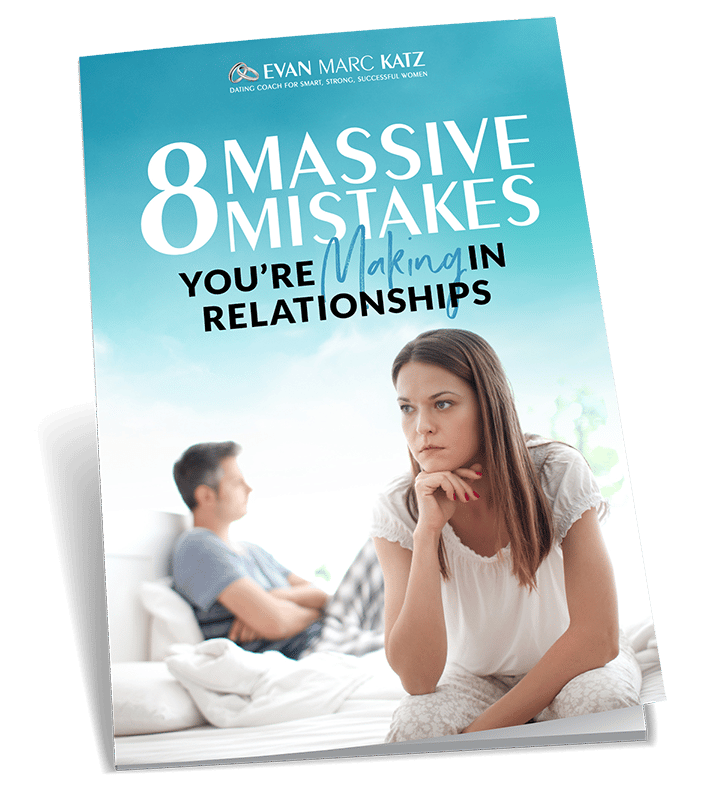How To Have A Difficult Conversation With Your Partner

- Communication, Fear and Insecurity in Relationships, Relationships
We all know that a great romantic relationship is one of the best predictors of future happiness, yet most people never consider taking a class on love. Similarly, social skills are one of the best predictors of success in life, and yet you don’t see too many classes or schools on how to develop them. I find that fascinating.
You can get online guitar lessons, coding lessons, Instagram lessons but the thing that matters most is the very thing we work on the least. I suppose we think we all have social skills so they shouldn’t require effort, as opposed to the innate ability to perform surgery, which obviously requires schooling.
If you still think that social skills are innate, ask yourself if most people do this well:
-
Self-regulation: Self-regulation deals with your ability not just to know your emotions, but manage them. Sometimes that might mean handling them as they come up. If you get angry, knowing how to calm yourself down is important. However, it can also deal with managing the emotions you will face. If you know that stalking your ex’s Facebook is just going to make you feel bad, self-regulation would help you go do something to better your own life instead.
Ready for Lasting Love?Ready for Lasting Love? -
Motivation: External factors like money, status, or pain are powerful motivators…This means that you know how to manage your own motivation and create or continue projects because you choose to, not because something outside yourself demands it.
-
Empathy: It’s just as important to be aware of the emotions of others. This might mean developing the skills to recognize how people are expressing themselves — can you tell the difference between someone who’s comfortable versus someone who’s anxious? — but it also means understanding how other people may respond to the circumstances they’re in.
-
Socialization: This area deals with your ability to steer your relationships and navigate social situations. It doesn’t mean controlling others, but understanding how to get where you want to be with other people. That might mean conveying your ideas to co-workers, managing a team, or dealing with a conflict in a relationship.
Do you know many people who have this all down? I don’t. And I’m including myself here! I can stand to be a more empathetic and patient listener.
I can stand to be a more empathetic and patient listener.
The thing that most of my Love U students struggle with most?
“Constructively confronting somebody”
Until you learn how to have calm but difficult discussions designed to solve problems (instead of pointing fingers), you will struggle in relationships – either because you feel like a doormat or because your partner feels you’re a selfish bully.
“Dr. Ryan Howes, a clinical psychologist explains that it’s our own fears that keep us from confronting others. Our fear that we’ll lose something we have, that we’ll hurt someone we care about, or that it will hurt but accomplish nothing. One of the first steps to constructively confronting someone is to recognize that fear in yourself and identify the real issues that led to the conflict in the first place. If you’re annoyed that your partner forgot your birthday, for example, ignoring how you feel about it won’t resolve the conflict.
Once you’re ready, Gregg Walker, a professor at Oregon State University, recommends having the conversation when there’s time to discuss the issue, focusing on “I” statements like “I feel hurt that we didn’t do anything for my birthday,” and describing behavior and your reaction to it, rather than hurling accusations. Healthy confrontations require a fair amount of awareness of your own emotions, so this is a good time to practice that skill.
These are far from the only social situations you might find yourself struggling with, but the principles that can be applied are nearly universal. Acknowledge your own emotional state and manage your needs and feelings in a constructive way. Take the initiative to pursue the social outcomes you want, and empathize with others who are dealing with the same struggles you are. With practice, the rest of the complex nuances of social interaction will flow a lot more naturally.
I’ve written about this a few times before but still believe that the perfect person without these conflict resolution skills is bound to be a terrible spouse.
Your thoughts, below, are greatly appreciated.










Comments